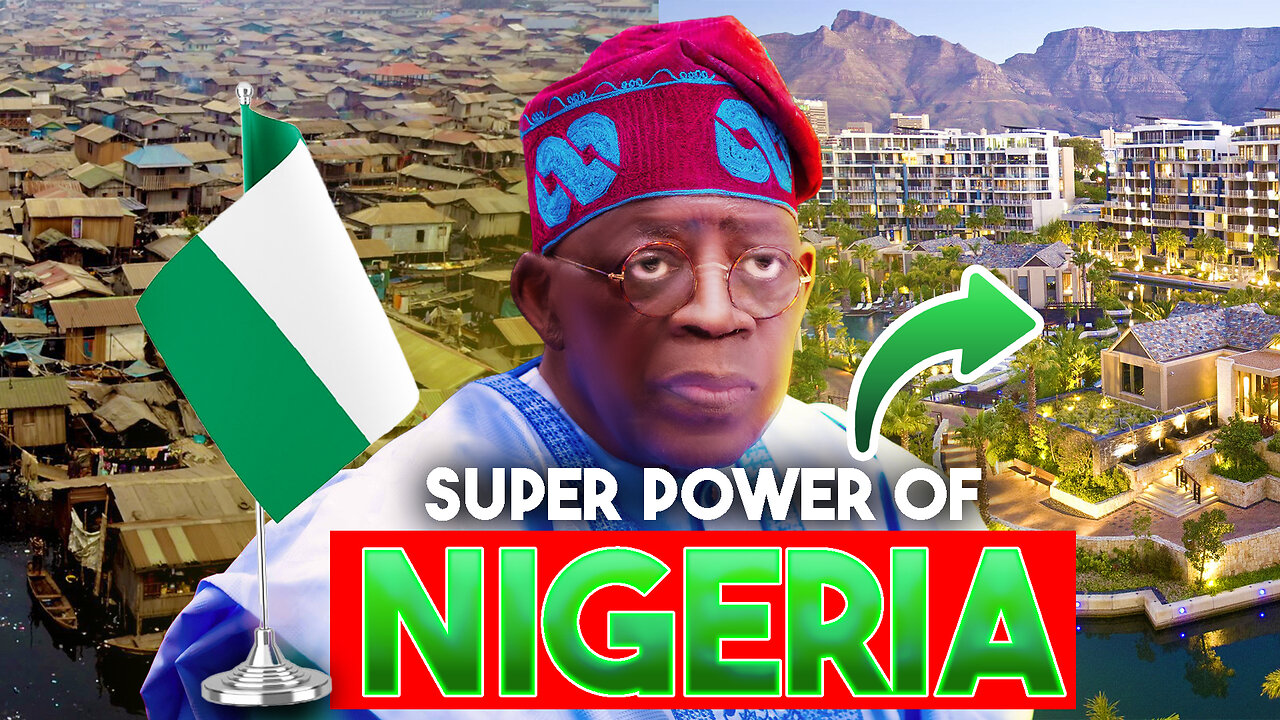Premium Only Content

1:39 / 4:25 Why Nigeria Is The Richest Country In Africa
From the bustling streets of Lagos and Abuja to the vast oil fields of the Niger Delta, Nigeria stands as a beacon of economic prowess on the African continent.
With a staggering GDP estimated at $477 billion in 2022, Nigerian economy reigns supreme atop the list of the richest African countries and states, surpassing even the likes of Egypt and South Africa.
So, according to IMF growth projections, Nigeria's dominance is set to continue unchallenged in the years ahead. With a population exceeding 200 million, Nigeria's status as Africa's leading economy is firmly cemented for the foreseeable future.
The trajectory of Nigeria's economic ascent shows no signs of slowing down. Projections indicate that by 2028, Nigeria's GDP will soar to an impressive $915 billion, further widening the gap between itself and Egypt, the second-largest economic power in Africa.
Nigeria is a land of diverse cities, culture, and boundless potential. With over 200 million people, it's the most populous country in Africa. But why Nigeria is different from its neighboring countries in Africa. Let's delve into the numbers and uncover the secrets behind Nigeria's wealth.
The late 1960s marked the beginning of Nigeria's economic transformation, driven by the burgeoning petroleum industry. As oil prices surged in the early 1970s, Nigeria experienced rapid economic growth across sectors like transportation, construction, and manufacturing.
But Nigeria's heavy reliance on oil also brought challenges, especially with fluctuating global oil prices. In response, the government initiated privatization efforts in the late 1990s, aiming to enhance service quality and reduce dependency on oil revenues.
Enter Aliko Dangote, Africa's wealthiest man and a visionary entrepreneur. His ambitious project, the Dangote Refinery, is set to become Africa's largest oil refinery, with an investment exceeding $8.4 billion. This refinery will significantly boost Nigeria's oil production capacity, solidifying its position as a global player in the energy sector.
Nigeria’s economic story goes beyond oil. Its manufacturing sector, the largest in Africa since 2013, contributes significantly to the country's GDP. From textiles to automobiles, Nigeria's manufacturing prowess is a testament to its industrialization efforts.
According to Wode maya, the land’s entrepreneurial spirit knows no bounds, with a youthful population eager to innovate and create. The tech industry is booming, with Nigeria leading the way in fintech and blockchain technology. This wave of entrepreneurship is driving economic growth and fostering innovation across sectors.
And let's not forget Nollywood, Nigeria's vibrant film industry. Producing over 1,000 movies annually, Nollywood is second only to Bollywood in terms of output. Its influence extends far beyond Nigeria's borders, showcasing Africa's rich culture and talent on the global stage.
Nigeria’s journey to economic prosperity is not without its challenges. Corruption, messed up and inadequate infrastructure, and power supply difficulties continue to hinder progress. However, initiatives like the National Economic Empowerment and Development Strategy (NEEDS) are paving the way for sustainable growth and development.
:
Despite these challenges, Nigeria's potential is boundless. With a young and dynamic population, abundant natural resources, and a thriving entrepreneurial ecosystem, Nigeria is poised to become a global economic powerhouse.
-
 15:47
15:47
Preston Stewart
20 hours agoDeadly Trap in Gaza
7.65K11 -
 14:09
14:09
BlackBeltBarrister
21 hours ago $0.03 earnedThey Fell for the TRAP!
7.95K3 -
 16:08
16:08
Professor Gerdes Explains 🇺🇦
13 hours agoTrump's Tough New Putin Talk: Just Words or Real Action Coming?
6.05K4 -
 13:02
13:02
Michael Button
4 days ago $3.10 earnedThere’s a HUGE Problem with Mainstream Archaeology
64.2K13 -
 10:58
10:58
Nikko Ortiz
16 hours agoCrazy Karen TikTok Fails Part 13
114K11 -
 8:01
8:01
GritsGG
16 hours agoClutch Hop Ups in Warzone Call of Duty!
20.7K1 -
 10:00
10:00
MattMorseTV
1 day ago $9.27 earnedTrump isn't TAKING the BAIT.
55.3K62 -
 20:40
20:40
Side Scrollers Podcast
1 day agoGen Z Tries OG Super Mario Bros for the First Time
73.7K17 -
 2:40:49
2:40:49
FreshandFit
10 hours ago1 Conservative VS Miami Girls
128K80 -
 2:28:04
2:28:04
Badlands Media
12 hours agoDevolution Power Hour Ep. 370: Epstein Optics, Russiagate Criminal Referrals, and the Taiwan Countdown
260K36